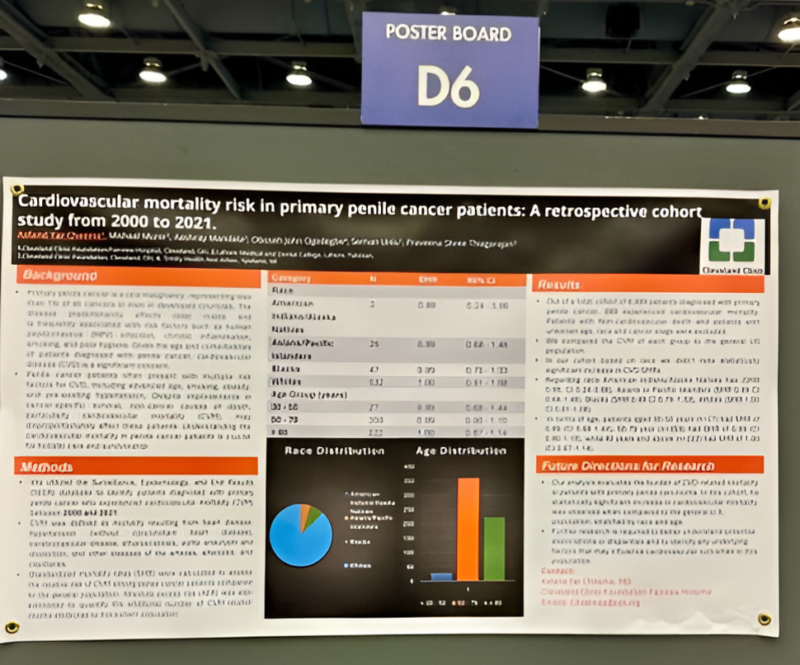An article authored by Asfand Yar Cheema and colleagues was published on Journal of Clinical Oncology by ASCO Publications.
Authors: Asfand Yar Cheema, Mishaal Munir, Aashray Mandala, Oboseh John Ogedegbe, Serhan Unlu, and Praveena Shree Thiagarajan
Penile cancer is a rare malignancy, primarily affecting older men and often linked to risk factors such as HPV infection, smoking, and chronic inflammation. Given that many of these patients also have cardiovascular disease (CVD) risk factors—including smoking, obesity, and hypertension—understanding their cardiovascular mortality (CVM) is crucial for comprehensive care.

Study Overview:
Using data from the SEER database (2000–2021), researchers analyzed cardiovascular-related deaths in penile cancer patients. Out of 6,889 patients diagnosed with primary penile cancer, 689 succumbed to CVM. Causes of cardiovascular mortality included heart disease, hypertension, cerebrovascular disease, and other vascular conditions. Standardized mortality rates (SMRs) were calculated to compare CVM risk in penile cancer patients against the general U.S. population.
Key Findings:
- No statistically significant increase in cardiovascular mortality was observed among penile cancer patients compared to the general population.
- Stratified by race, SMRs were nearly identical across all racial groups, including White, Black, Asian/Pacific Islander, and American Indian/Alaska Native populations.
- Similarly, when analyzing by age, SMRs remained consistent across different age groups, including patients aged 30–50, 50–79, and 80+.
Conclusion:
Despite the known cardiovascular risk factors present in penile cancer patients, this study found no significant increase in CVM compared to the general population. These findings suggest that while CVD remains an important consideration in survivorship care, penile cancer itself may not contribute to excess cardiovascular mortality. Future research is needed to explore potential disparities and refine cardiovascular risk management strategies for this patient population.
About Asfand Yar Cheema

Asfand Yar Cheema, MD is a Internal Medicine Resident at Cleveland Clinic Foundation/Fairview Hospital, President ASCO OSIG CCF FV, Founder of Ask a Doctor, Aspiring Hematology and Oncology. Interested in Medical Education, Research and Patient Care.


